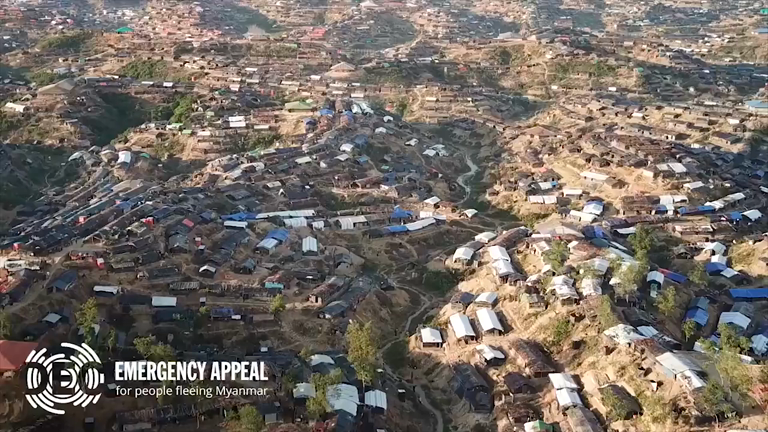IRDR Publishes in the Lancet Global Health on Rohingya Crisis
9 May 2018
UCL Institute for Risk and Disaster Reduction (IRDR) in collaboration with colleagues from the UCL Institute for Global Health (IGH) has published a comment on Rohingya issues in the Lancet Global Health Journal (Impact factor of 17·686).
 The article - "Humanitarian disaster for Rohingya refugees: impending natural hazards and worsening public health crises" - was published online on 11 April 2018 and can be downloaded from the link: https://www.thelancet.com/journals/langlo/article/PIIS2214-109X(18)30125-6/fulltext
The article - "Humanitarian disaster for Rohingya refugees: impending natural hazards and worsening public health crises" - was published online on 11 April 2018 and can be downloaded from the link: https://www.thelancet.com/journals/langlo/article/PIIS2214-109X(18)30125-6/fulltext
The article highlights how a million of Rohingya refugees are forced to live in challenging environment by wiping out reserved forests, cutting hills and making tiny huts in the dangerous hill-slopes in Cox's Bazar, Bangladesh. Apart from facing serious human rights violation by the Burmese Army in Rakhine State; they are currently living with the threats of landslides and flash-flooding. They are already facing numerous diseases with limited access to health care facilities. The authors argued that the combination of natural and health hazards could uncompromisingly deteriorate the living condition of the Rohingya refugees in the camps. It is time to take necessary disaster risk reduction measures to tackle the cascading threats during the monsoon season in Bangladesh.
This article is the first outcome of the project - "The Rohingya Exodus: Issues and Implications for Stability, Security and Peace in South Asia" funded by the British Academy (Award Reference: IC2\100178) and led by Professor Peter Sammonds. A day-long scenario workshop on - "Rohingya Health and Disaster Simulation" was arranged by the UCL Lancet Commission on Migration and Health, in collaboration with the UCL IRDR, UCL IGH and the UCL Humanitarian Institute on 30 November 2017. The concept of this article was generated from the workshop. As part of global scale impact, the authors are planning to publish more articles and arrange few more high-level workshops on Rohingya issues in London and in Dhaka.
 Close
Close






